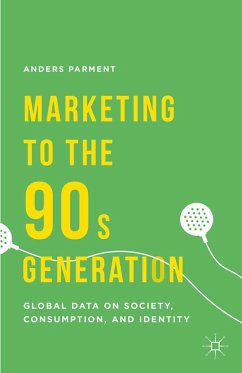
Generation Y: Comparison of Eastern Europe and Central Asia
Versandkostenfrei!
Versandfertig in 6-10 Tagen
36,99 €
inkl. MwSt.

PAYBACK Punkte
18 °P sammeln!
Terms such as Millennials, Generation Y, Generation We, Echo boomers, Generation Next, the Net Generation, the Lost Generation, the Digital Generation and much more have been used to describe a specific generational cohort of young adults in popular, professional and/or academic literature. In my book, however, I will employ the term Generation Y. While the concept of Generation Y is used worldwide, the criteria and operationalization for this demographic cohort still remain inconclusive. Generation Y usually refers to people born in the 1980s and 1990s, or even early 2000s (Eisner, 2005). For...
Terms such as Millennials, Generation Y, Generation We, Echo boomers, Generation Next, the Net Generation, the Lost Generation, the Digital Generation and much more have been used to describe a specific generational cohort of young adults in popular, professional and/or academic literature. In my book, however, I will employ the term Generation Y. While the concept of Generation Y is used worldwide, the criteria and operationalization for this demographic cohort still remain inconclusive. Generation Y usually refers to people born in the 1980s and 1990s, or even early 2000s (Eisner, 2005). For the purpose of this work, the term Generation Y will be used to describe young adults aged between 18 and 30 years, who are currently pursuing their higher education studies, or are recent graduates with regard to the Bologna education process. This kind of operationalization has been, for example, employed by Raskovic et al. (2016) in their recent work focusing on this consumer demographiccohort in emerging markets in the Journal of Business Research.












